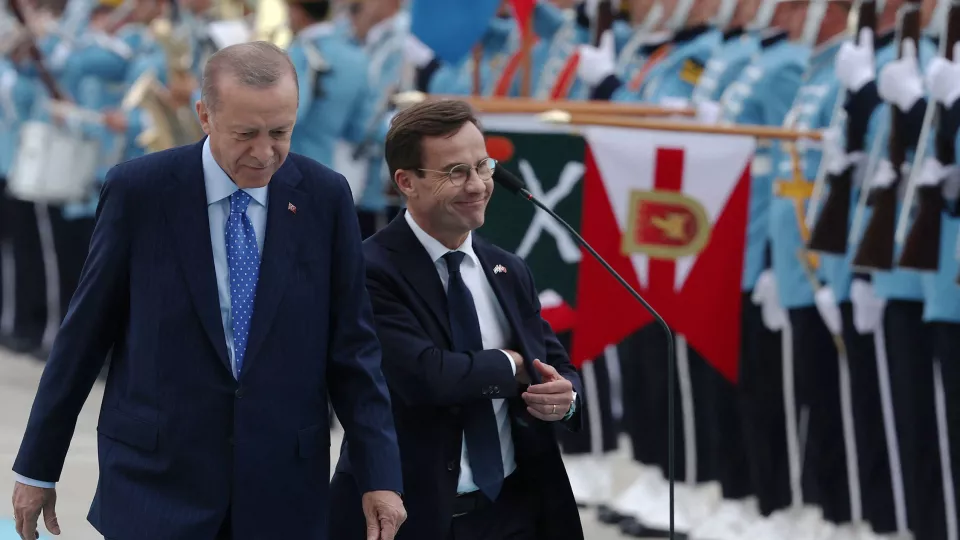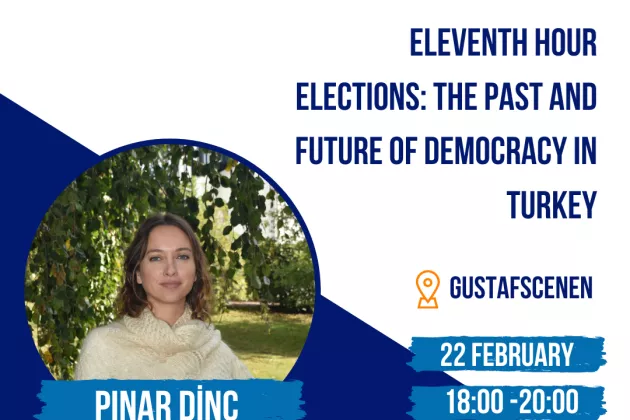In the summer of 2022, Turkey, Sweden and Finland proposed an agreement that would see Turkey's NATO applications approved. The agreement was signed at a NATO meeting in Madrid. Although Turkey suspended official negotiations after the Quran burnings in Sweden, the agreement was not torn up.
In addition to the lifting of arms sanctions, the agreement includes cooperation between the countries' law enforcement and security services and against terrorism. Turkey is also demanding that Sweden, in particular, deport and stop accepting people who Turkey says could be considered terrorists, which has caused growing concern among Sweden's large Kurdish diaspora.
"For Sweden to extradite someone to Turkey is tantamount to saying that Sweden has no problems with Turkey’s human rights records and that the country has a functioning judicial system. That would be going against what all the human rights reports on Turkey highlight. Sweden would be signing up to the idea that, for example, there is no torture in Turkish prisons. For Sweden to extradite an individual to Turkey is essentially the same as sending a woman without a veil to Iran today," says Pinar Dinç, a political scientist and researcher at the Centre for Advanced Middle Eastern Studies at Lund University.
Risk of conflict between human rights and Sweden's NATO membership
Pinar Dinç is particularly concerned about the part of the agreement that deals with increased cooperation between the Swedish and Turkish security services, i.e., between the Swedish intelligence agency SÄPO and its Turkish counterpart MIT.
"This would be disastrous for many people, including political activists, LGBTQI persons or journalists seeking asylum in Sweden. The idea is to give Turkey information about people who have left the country because they risk imprisonment for political views that are not compatible with those of the regime. It could be intellectuals, students, journalists or people of a certain sexual orientation," says Pinar Dinç.
"It could be that they want to leave Turkey, where they risk an unreliable judicial process or torture. There is a direct conflict between human rights and Sweden's process for reaching a NATO agreement," says Pinar Dinç.
"The Swedish view of the Kurds has been adapted to the Turkish agenda"
The Kurdish PKK is listed as a terrorist group in Sweden, as it is in the rest of the EU. Before the NATO process, there was no move in Sweden to designate the YPG as a terrorist group.
For many reasons, the West has had a completely different relationship with the YPG than with the PKK. In the war against the Islamic State (IS) terrorist movement in Syria, the YPG has been an ally of the West, effectively acting as NATO boots on the ground.
"From a Turkish perspective, the YPG is seen as closely linked to the PKK. Therefore, both movements are seen as a direct threat to Turkey's national and border security. But the fact is that neither the PKK nor the YPG are currently pushing the issue of an independent Kurdish nation-state," says Pinar Dinç.
She says the main issues that both the PKK and the YPG are currently promoting are direct democracy, ecology, and gender equality.
Pinar Dinç describes Turkey's desire for Sweden to declare the YPG a terrorist group as problematic.
"What Turkey is really asking for in the negotiations, and what is reflected in the agreement, is that the Swedish view of the Kurds be adapted to the Turkish agenda," says Pinar Dinç.
"Sweden must stand up to Turkey in the conflict over values"
Rikard Bengtsson, a political scientist at the Department of Political Science at Lund University, says that the NATO issue has become a way of measuring Swedish values.
"The agreement between Finland, Sweden and Turkey requires interpretations that could very well put Sweden in a position where we have to nail our colours to the mast and take on Turkey in a conflict; that we will not dilute our basic principles. This has already happened, of course, when the Supreme Court refused to extradite a person to Turkey," says Rikard Bengtsson.
He also cites the recent refusal to grant a demonstration permit for the controversial Quran burnings. Sweden's freedom of speech is on one side of the scale, and the desire not to antagonize Turkey and the Muslim world on the other.
"On the one hand we say that we are not diluting the right to freedom of expression, that it is legal to burn the Quran and to hold demonstrations. On the other hand, after contacts with SÄPO, the police have now decided that such actions can have a negative impact on the security situation. Freedom of speech is not an absolute right in Swedish law, but it is still relevant to ask whether we are neglecting our principles and compromising our values? What considerations are we taking into account when we restrict the right to protest?" asks Rikard Bengtsson.
He also points to the problematic nature of the part of the agreement that commits Sweden to classifying organizations linked to the PKK as terrorist groups.
"Sweden interprets this part in a completely different way from Turkey. According to the agreement, we should support Turkey in its work on national security. At the same time, we know that Turkey wants to restrict the personal freedoms of certain groups and individuals in society on the grounds of national security. Even if this leads to persecution, imprisonment and torture. There is a touch of naivety on the part of Sweden," says Rikard Bengtsson.
How would relations with the EU and the US be affected if Sweden were to declare the YPG a terrorist organization?
"My assessment is that the question is not relevant - it will not happen. Sweden is part of the EU system and Sweden will not act alone here," says Rikard Bengtsson.
Contact information
Rikard Bengtsson
Researcher
Political Science
Telefon: +46 46 222 89 30
rikard [dot] bengtsson [at] svet [dot] lu [dot] se (rikard[dot]bengtsson[at]svet[dot]lu[dot]se)
Rikard Bengtsson – LU Research Portal
Pinar Dinç
Researcher
Political Science
pinar [dot] dinc [at] svet [dot] lu [dot] se (pinar[dot]dinc[at]svet[dot]lu[dot]se)





